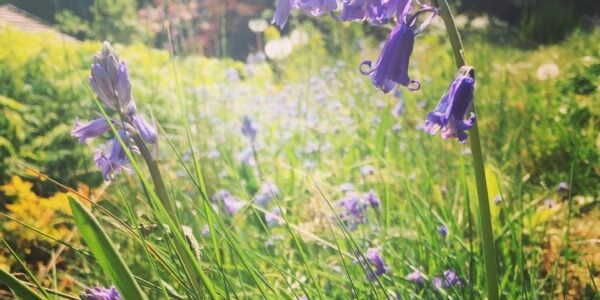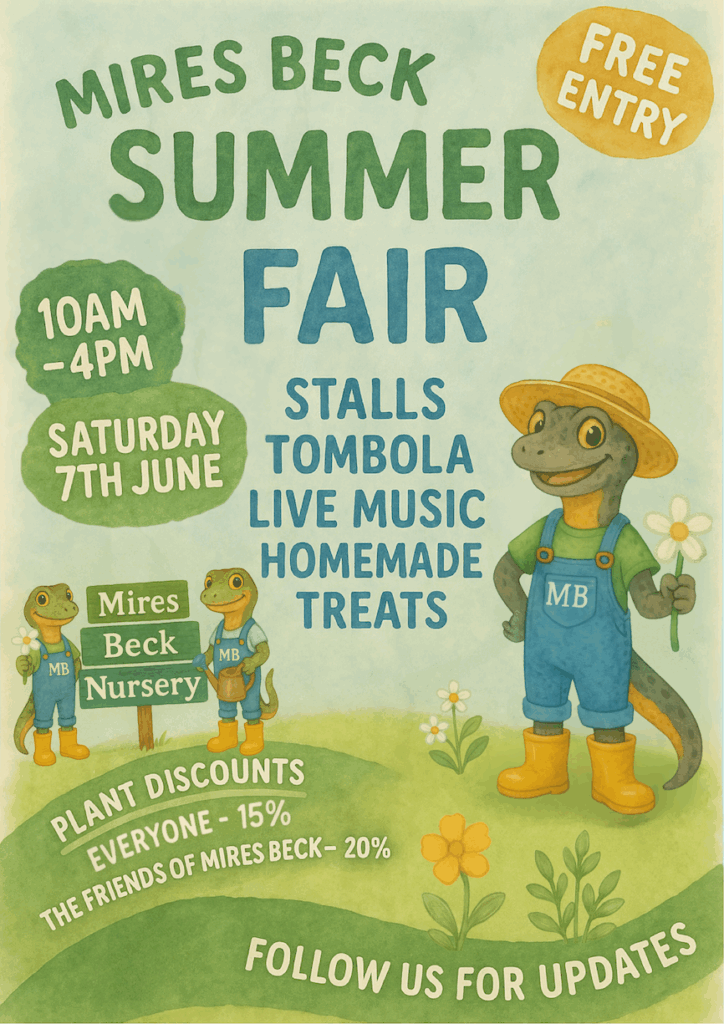Hull City Nature Challenge starts tomorrow!
The Hull City Nature Challenge 2025 aims to promote the collection of biological data across the City of Hull. Observations will support local efforts to look after and connect with wildlife and nature in the parks and green spaces where residents live, and help inform decision making in the local area.
Participants don’t need to be experts to take part! Simply download the iNaturalist app onto a smartphone or device and take photos of any wild animals, plants, birds, insects or fungi and the app will help identify observations through its global community.
Any observations made between 25th April – 28th April 2025 will count towards the City Nature Challenge. Observations can be made any time on iNaturalist, however, so interested individuals can start recording today and get familiar with iNaturalist in time for the 2025 challenge!
City Nature Challenge 2025: Hull is being organised locally by the North and East Yorkshire Ecological Data Centre (NEYEDC) working in partnership with a range of organisations from across the city.
Already an iNats user? The project is here.
Big River Watch: 25th April to 1st May
Twice a year, The Rivers Trust runs a Big River Watch, and the next one takes place from 25th April to 1st May. These are week-long citizen science surveys in which everyone can take part in a simple activity that helps build a picture of river health across the UK and Ireland.
New for this year, participants who’d like to collect even more information about their river can also sign up to the Great UK WaterBlitz, and test the water for phosphates and nitrates after completing a Big River Watch survey.
Our rivers are far from healthy. They’re polluted with sewage, plastic, chemicals and nutrients, and just 15% of river stretches in England are in good overall health.
To restore them, more information is needed about how they’re doing. The public can help identify and locate the issues. With the Big River Watch app, citizens can help identify problems, and will contribute to a national data set that will help build a picture of river health.
Taking part is easy, so check out the project website here!

Petition to ban driven grouse shooting
Chris Packham, Ruth Tingay and Mark Avery (Wild Justice) believe that driven grouse shooting is bad for people, the environment and wildlife. People; and think grouse shooting is economically insignificant when contrasted with other real and potential uses of the UK’s extensive uplands.
If you feel the same, there is a petition here for people to sign, that is very close to the 100,000 signatures to be considered for debate in the House of Commons.
This isn’t the first attempt to get a petition like this through, and if you’re interested in a deeper read about the impact of this ‘sport’ then you can look at some of the written evidence that was previously submitted.

Hull & East Yorkshire Mayoral Hustings
Join online this Earth Day (Tuesday, 22 April) for the Hull & East Yorkshire Mayoral Climate and Nature Hustings where candidates for the new role of Combined Authority Mayor will discuss their priorities for the community. This is an opportunity for residents to hear directly from candidates and learn about their plans for the future of the region with the additional budget and powers this role will bring.
Attendees can find out more about their local Friends of the Earth group and read the Regional Climate Action Plan with the national Friends of the Earth team by following this link: https://www.hfoe.org.uk/whats-on/mayoral-hustings
Don’t miss out on this opportunity to engage with the candidates and make an informed decision on election day.
Whoever voters choose, whoever wins will need an action plan. Register on Eventbrite for the event!
Get your free ticket and be part of the conversation! The event is supported by The Yorkshire Wildlife Trust and the RSPB.

Walking for Health 2025
Just a reminder that the Walking for Health East Riding is continuing in 2025! It starts from Molescroft Pavillion, lasts an hour and runs every Tuesday at 10am in all weathers!

Big Garden Birdwatch 2025 – THIS WEEKEND!
Big Garden Birdwatch is the world’s largest garden wildlife survey. Every year, hundreds of thousands of nature lovers take part, helping to build a picture of how garden birds are faring.
This RSPB event takes place from the 24th-26th January, and for more information how you can take part, and see some headline figures from the 2024 event, head over to the RSPB website.
To understand why this is so important, there’s some excellent coverage in The Guardian.
Hull & District Local RSPB Group
If you’re a birder, twitcher, or just have an interest in avian biodiversity, did you know there was a local RSPB Group for Hull & District? Representing the RSPB in the Hull area, the Hull & District Local Group has an active programme of indoor and outdoor meetings, including weekend trips, and welcomes non-members to its meetings.
Indoor meetings are held on the second Tuesday of each month from September to April. Outdoor meetings run throughout the year. Meetings start at 7.30pm. Entry charges are £3 for local group members and £3.50 for non-members.
For more information on the group please see their RSPB website details!
MWN Postbox Pocket Meadow Management
A few members of MWN got together on Saturday to work on Postbox Pocket Meadow. The plan for the day was to do a late cut on the grass, and clear away the debris, and particularly the leaves that have accumulated on the spot. These provide too much nourishment to the ground, and discourage the succession of the plants we’d like to see growing.
The mow went surprisingly well given the damp grass, and the area was very vigorously raked, with the intention of disturbing as much of the grass as we could, in order to the the next phase. Which was adding some of our saved and donated yellow rattle seeds over the area and tamping them down with some very coordinated stomping! It was also great to engage a number of dog walkers and passer’s by to tell them what exactly we were up to.
We were incredibly lucky with the weather, as it was dry on the day, and nice and wet the next, ensuring that the seed would get a great chance to bed in. Be sure to keep an eye out from March to see how the patch is going!
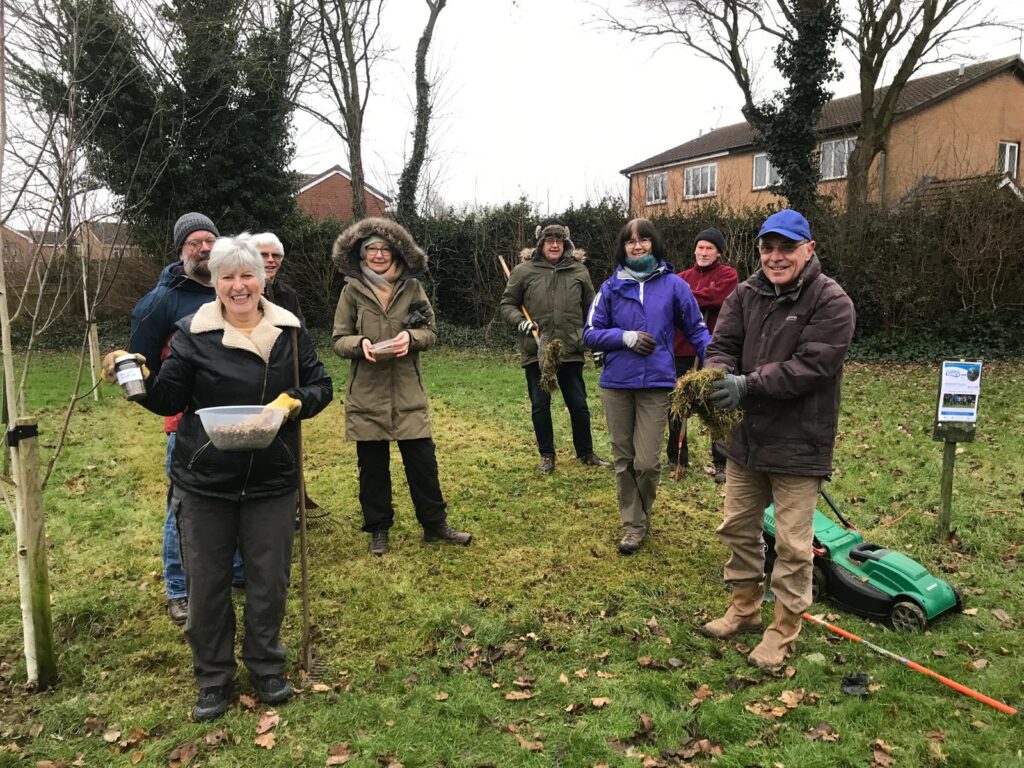

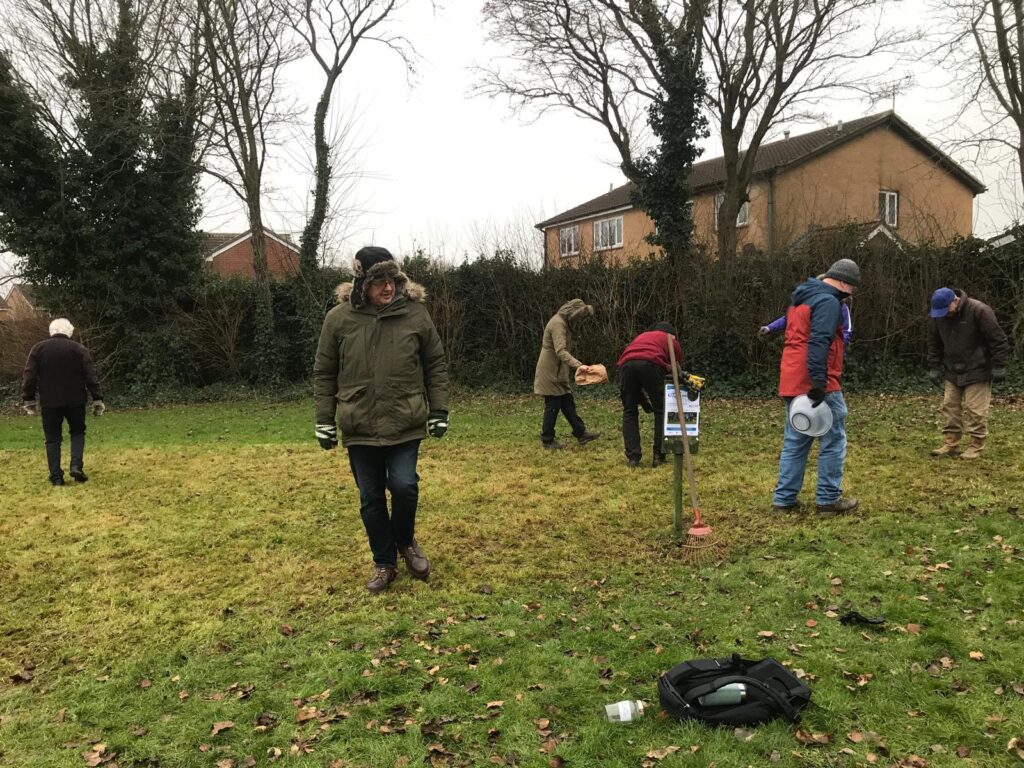
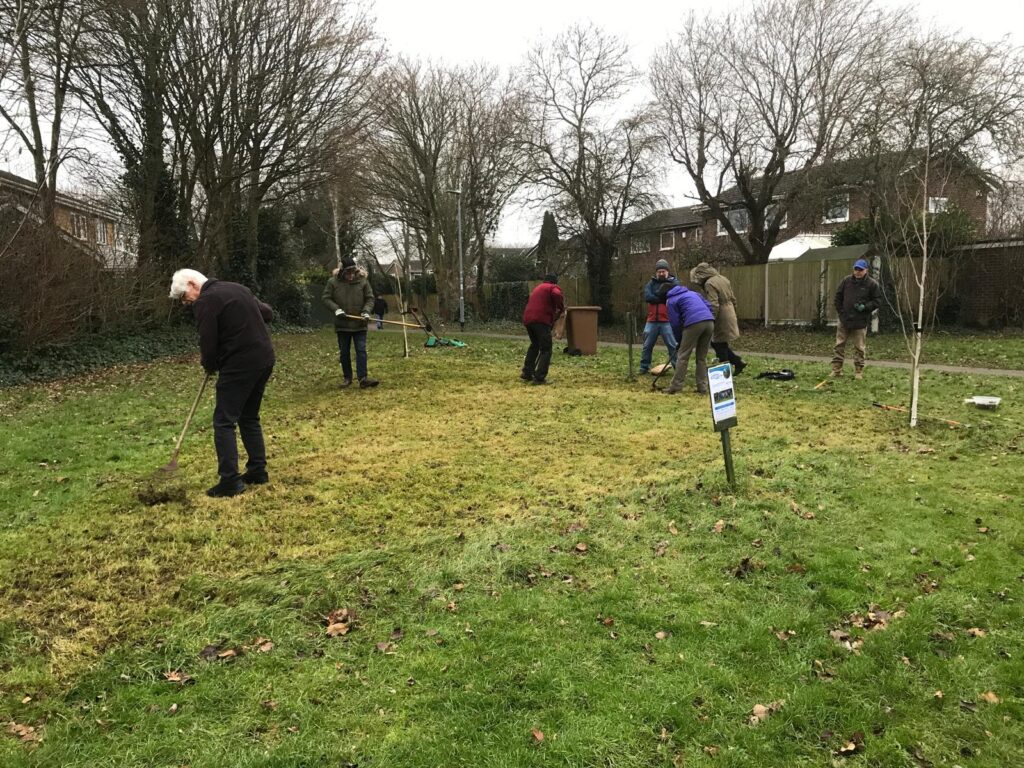
FSC “Signs of Spring” survey
Field Studies Council is working in partnership with the Royal Society of Biology to bring you the Signs of Spring survey 2025. Signs of Spring is a survey asking members of the public to record ten signs of spring across the UK.
They would love people to get involved by looking out for any of the ten indicator species or events that herald spring, and when you see one, record it using their short survey. For more information on the survey, click here. And to submit a sighting if you already know what inidcators they are using, click here! (Hint, bluebells are one!)
